Happy Monday! The Dispatch Summit is tomorrow, and former House Speaker Paul Ryan will be there. Should we ask him if he still knows what a “dab” is?
Up to Speed
- Over the weekend, the Associated Press called Nevada and Arizona for President-elect Donald Trump, bringing the final electoral vote tally to 312-226 and cementing his sweep of all seven battleground states. As for the national popular vote, Trump leads with 74.8 million (50.4 percent) to 71.2 million (48 percent) for Vice President Kamala Harris as of this morning, though more votes are left to count.
- President Joe Biden will host Trump in the Oval Office on Wednesday at 11 a.m. ET. Meetings between an outgoing and incoming president are customary. However, Trump did not extend the same courtesy to Biden in 2020 after losing to him, maintaining he won that year’s election and that the outcome was rigged and stolen.
- The size of the Republicans’ incoming Senate majority remains uncertain. The Associated Press, New York Times, and Decision Desk HQ have all called Nevada for incumbent Democratic Sen. Jacky Rosen over Republican challenger Sam Brown, who conceded Saturday. However, only Decision Desk HQ has called Arizona for Democratic Rep. Ruben Gallego over GOP nominee Kari Lake, who has yet to concede. Meanwhile, the AP remains the only one of the three to have called the Pennsylvania Senate race for Republican Dave McCormick over incumbent Democratic Sen. Bob Casey, who also has not conceded.
- The Associated Press, The New York Times, and Decision Desk HQ also differ on where the battle for control of the House of Representatives stands, although Republicans still appear poised to defend their majority by a narrow margin. The AP and the Times have the count at 214-203 for Republicans with 18 races uncalled, while Decision Desk HQ has it at 216-209. Republican candidates are leading in multiple races that have yet to be called, including Alaska’s at-large district and those of incumbent Republican Reps. John Duarte and Ken Calvert of California and Juan Ciscomani of Arizona.
- Trump announced two appointments to his impending White House. He said on Truth Social Sunday night that Tom Homan, who served as acting director of Immigration and Customs Enforcement early in his first term, will be the new administration’s “border czar.” “I’ve known Tom for a long time, and there is nobody better at policing and controlling our Borders. Likewise, Tom Homan will be in charge of all Deportation of Illegal Aliens back to their Country of Origin,” he wrote in a post. Additionally, Trump will look to have Rep. Elise Stefanik of New York serve as his ambassador to the United Nations. “I am honored to nominate Chairwoman Elise Stefanik to serve in my Cabinet as U.S. Ambassador to the United Nations. Elise is an incredibly strong, tough, and smart America First fighter,” Trump told the New York Post in a Sunday report. Stefanik told the Post she was “truly honored to earn President Trump’s nomination to serve” in the role.
- Former U.N. Ambassador Nikki Haley and former Secretary of State Mike Pompeo will not serve in Trump’s administration, the president-elect announced Saturday. “I will not be inviting former Ambassador Nikki Haley, or former Secretary of State Mike Pompeo, to join the Trump Administration, which is currently in formation,” Trump said in a Truth Social post. “I very much enjoyed and appreciated working with them previously, and would like to thank them for their service to our Country. MAKE AMERICA GREAT AGAIN!” It is unclear whether Haley had ambitions to be in the administration, but Pompeo was gunning for an appointment as secretary of defense, according to Politico. The prospect of his serving in that role, however, ran afoul of Donald Trump Jr. and far-right commentator Tucker Carlson. Pompeo, unlike Haley, did not challenge Trump for the 2024 nomination but also endorsed the president-elect later in the campaign than other former administration officials.
- Sen. Tim Scott of South Carolina is running for the top post at the National Republican Senatorial Committee. “I’m running for NRSC Chair because two years of a Republican agenda is good, but four years of success under Donald J. Trump is even better,” he told Fox News Digital, which first reported the news. Scott touted endorsements from the outgoing NRSC chair, Sen Steve Daines of Montana, plus Senate Republican Conference chair Sen. John Barrasso of Wyoming, and Sen. Marco Rubio of Florida.
Inside the Race for Senate Majority Leader
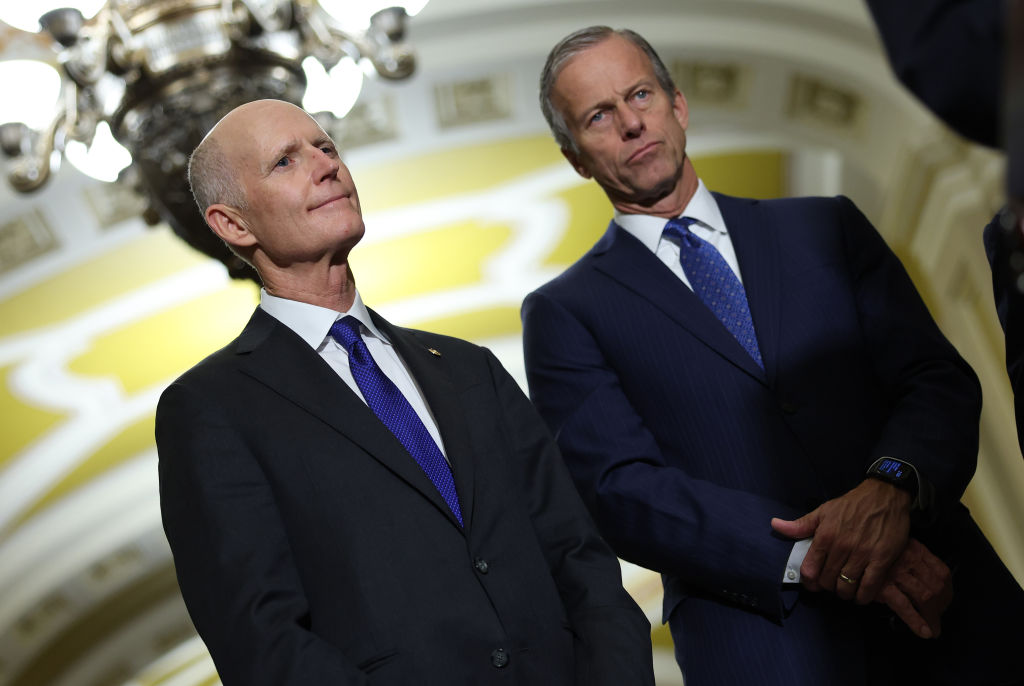
Has Elon Musk hand-selected the next Senate majority leader? Not exactly, but it’s not for lack of trying.
On Sunday, with three days to go before the members of the new Republican majority meet to elect a new leader to succeed Sen. Mitch McConnell, the billionaire and consigliere to President-elect Donald Trump posted on his X platform a simple message that said a whole lot.
“Rick Scott for Senate Majority Leader!” Musk wrote, responding to a tweet from the Florida Republican who just won reelection handily. Scott’s tweet was a promise that, as majority leader, he would “do whatever it takes” to fast-track Trump’s nominations. And Scott’s tweet was itself a direct response to a Sunday afternoon tweet from the incoming president:
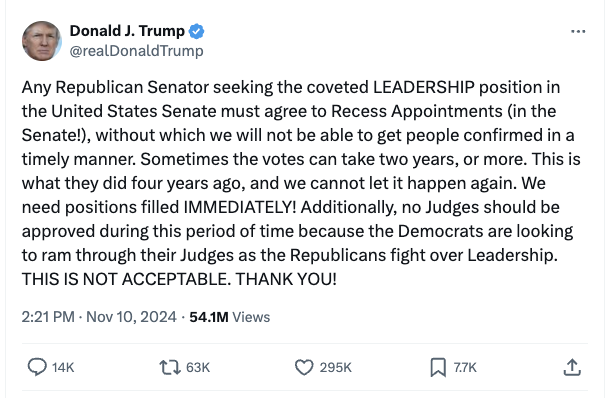
Trump had resisted publicly weighing in on the Senate leadership race, but his not-so-cryptic tweet suggests the president-elect is keenly aware how the rules and precedents in the Senate—on track for a three-seat GOP majority—could tap the brakes on the agenda for his second term. The litmus test is clear, even if the tweet simplifies how recess appointments work.
(A quick aside: These temporary appointments are a way around the Senate blocking a nomination, but for a president to make them, the Senate as a body must agree to adjourn and, thanks to a 2014 Supreme Court decision, be adjourned for more than 10 days. The majority leader has no power under the current rules to “agree” to a recess appointment nor to have a majority vote on adjourning—unless, of course, the Senate rules were changed to remove the 60-vote threshold to break a filibuster and close debate.)
The Scott-Musk tag-team response suggests an effort is afoot to convince Trump to put his thumb on the scale for his fellow Floridian, but Senate Republicans have two additional choices running in Wednesday’s election: John Thune of South Dakota, who has been serving as McConnell’s No. 2 as Republican whip; and John Cornyn of Texas, who preceded Thune as whip. And just because one of Trump’s most important advisers has come out for Scott does not necessarily impact the outcome of the election. It is a secret ballot, after all.
But when it comes to who is willing to jump as high as necessary for Trump on Senate-confirmed appointments, anyone looking for differentiation among the three candidates won’t find it here. Cornyn tweeted on Saturday that if he were leader, the Senate would stay in session until Trump’s appointees were confirmed, then followed up Sunday afternoon with a more concrete promise to accede to Trump’s ask on recess appointments. Thune himself issued a statement Sunday, making it clear recess appointments would be “on the table” if the Senate proved resistant to any of Trump’s picks.
“I’ve spent eight months carefully listening to my colleagues about their vision for the next chapter of the Senate Republican Conference, especially as we hit the ground running with President Trump. One thing is clear: We must act quickly and decisively to get the president’s cabinet and other nominees in place as soon as possible to start delivering on the mandate we’ve been sent to execute, and all options are on the table to make that happen, including recess appointments. We cannot let Chuck Schumer and Senate Democrats block the will of the American people,” he said in a statement provided to Dispatch Politics.
Of course, as the minority leader and the minority caucus, Schumer and the Democrats will be relatively powerless to block confirmation of Trump’s appointments.
The threshold for confirming presidential appointees, including judges, is 51 votes. So, even though the current Republican minority, and the incoming Democratic minority, are afforded the power to filibuster presidential appointees under Senate rules, neither have the votes to actually block confirmation. In other words, the Republican majority—projected at 53 seats—that will be sworn into office in January will have more than enough votes to confirm Trump appointees even with unanimous Democratic opposition.
So what Trump is really asking the soon-to-be-installed GOP majority to do is to neuter any opposition to his picks that might materialize from Republicans.
In any event, let’s dive into the Republican candidates for majority leader.
Thune has pitched himself largely as a majority-builder and Senate institutionalist. The fact that he is next in line to follow McConnell is a double-edged sword. While the Kentucky Republican had been reelected every two years since 2006 as the conference’s leader, McConnell’s final bid in November 2022 still saw 10 Republicans vote against him (while 37 voted for him). That was some proof the long-brewing grumbling about McConnell’s effective but top-down leadership style was growing into a durable resistance—and his opponents would like nothing more than to have senators think of Thune as a McConnell clone.
Allies of his, however, insist Thune is his own man and not a carbon copy of the outgoing leader. He’s earned support from a handful of senators across the Republican conference, from Montana’s Steve Daines (an establishmentarian) and Oklahoma’s Markwayne Mullin, who also serves as an unofficial envoy between Thune and Trump. To other members, Thune has pointed to his willingness to campaign on behalf of several of the newly elected Republicans who will have given the party its majority, including Tim Sheehy of Montana, Bernie Moreno of Ohio, and Dave McCormick of Pennsylvania. They also point to Thune’s fundraising prowess, including his transfer in September of $4 million from his campaign committee to the National Republican Senatorial Committee, the largest-ever single transfer to the committee.
But Cornyn can also point to his own strong fundraising abilities, and that’s formed a big part of his pitch. A familiar face to the dozens of big-dollar donors in Texas and elsewhere, Cornyn has touted his “nearly $33 million” raised in the current two-year cycle, part of a whopping $415 million raised for Republican Senate candidates since Cornyn was elected to the Senate in 2002. Only McConnell himself has been a more prolific fundraiser for the Senate GOP. In a press statement last week endorsing Cornyn for leader, Sen. Josh Hawley of Missouri highlighted the large amount of money the Texan has raised.
“In the last two years, nobody has done more to win back the majority than he has. He tirelessly raised millions of dollars for competitive Senate races, including mine,” Hawley said of Cornyn.
And then there’s Rick Scott, Musk’s pick, who challenged McConnell in 2022. Scott’s allies see the 10 votes he received then as a floor for his support two years later, a base of more conservative and more pro-Trump senators looking to radically change how the Senate works. So far, Scott has the most public endorsements, including Ron Johnson of Wisconsin, Bill Hagerty of Tennessee, Rand Paul of Kentucky, and his fellow Floridian Marco Rubio. On top of that, the support from Musk and the larger MAGA movement has given Scott the perception of momentum.
But whatever the online groundswell for Scott, what ultimately matters is support from actual senators who will be voting by secret ballot. (Unlike the election for House speaker, the Senate majority leader is not selected publicly in a vote of both parties on the chamber floor.)
Among Scott’s challenges: His colleagues were disappointed with his stewardship of Republicans’ electoral efforts in 2022, when he was chair of the NRSC and needed to win just one seat to capture the majority. The committee’s political and spending practices during that cycle earned scrutiny, especially after some Scott-driven expensive overhauls to the way the NRSC raised money left the committee without the cash to run many ads in the final weeks of the midterm campaign.
Scott himself spent much of his time boosting Senate candidates in out-of-reach races—moves that McConnell’s camp saw at the time as boosting Scott’s profile at the expense of helping winnable campaigns. After Republicans failed to win back control of the Senate in 2022, there were even calls by some senators for an audit of the NRSC, although Scott pushed back and blamed staffers under his predecessor, Sen. Todd Young of Indiana, for the failures.
But that was then, and this is now. Between Trump’s latest litmus test and Musk’s ability to turn over the megaphone to the populist grassroots, it’s possible supporting Scott in the leadership race could be seen as a proxy for supporting the incoming president. And in this honeymoon period, that’s a position nearly every sitting Republican senator has an interest in maintaining.
Notable and Quotable
“That was a cataclysm. Electoral map wipeout. Senate D practical ceiling is now 52 seats. R's is 62. Time to rebuild the left. We are out of touch with the crisis of meaning/purpose fueling MAGA. We refuse to pick big fights. Our tent is too small.”
—Sen. Chris Murphy of Connecticut in a post on X, introducing a thread in which he encourages fellow Democrats to embrace economic populism, November 10, 2024



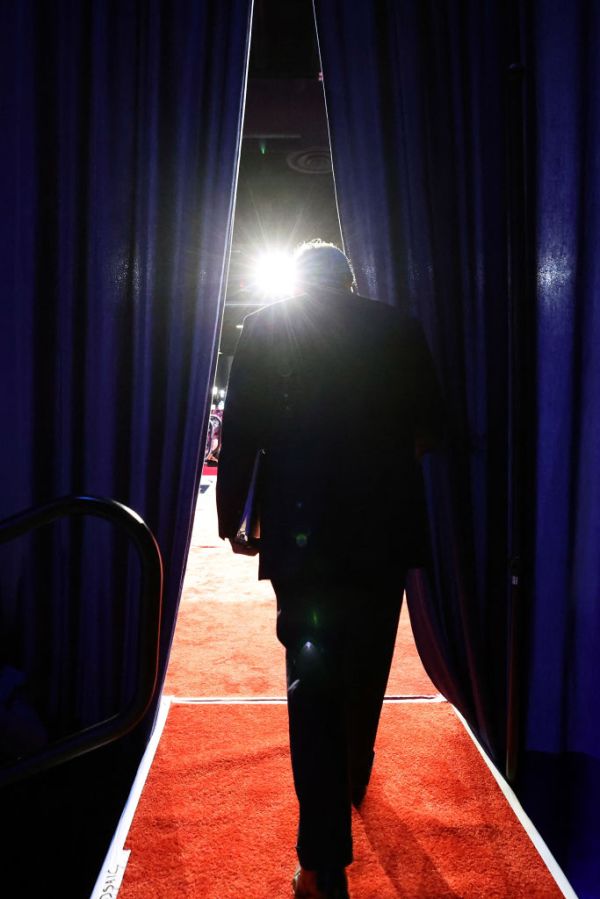

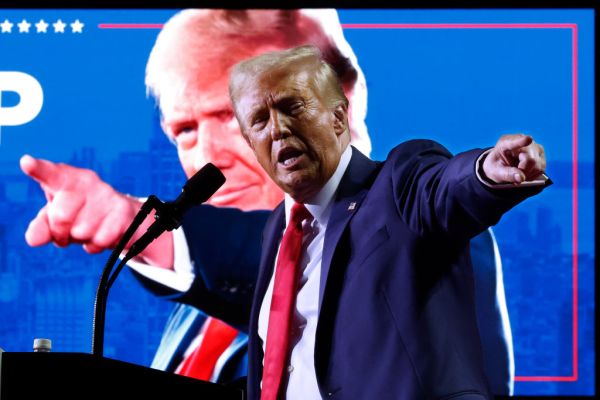

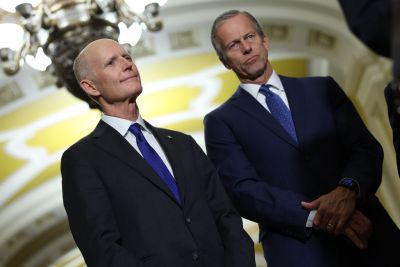
Please note that we at The Dispatch hold ourselves, our work, and our commenters to a higher standard than other places on the internet. We welcome comments that foster genuine debate or discussion—including comments critical of us or our work—but responses that include ad hominem attacks on fellow Dispatch members or are intended to stoke fear and anger may be moderated.
With your membership, you only have the ability to comment on The Morning Dispatch articles. Consider upgrading to join the conversation everywhere.